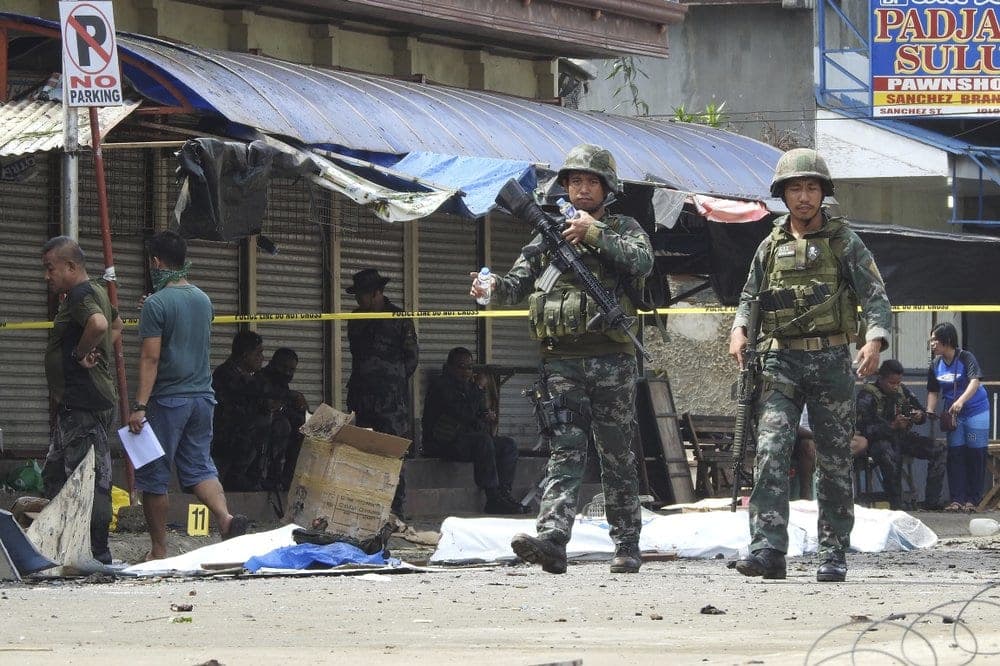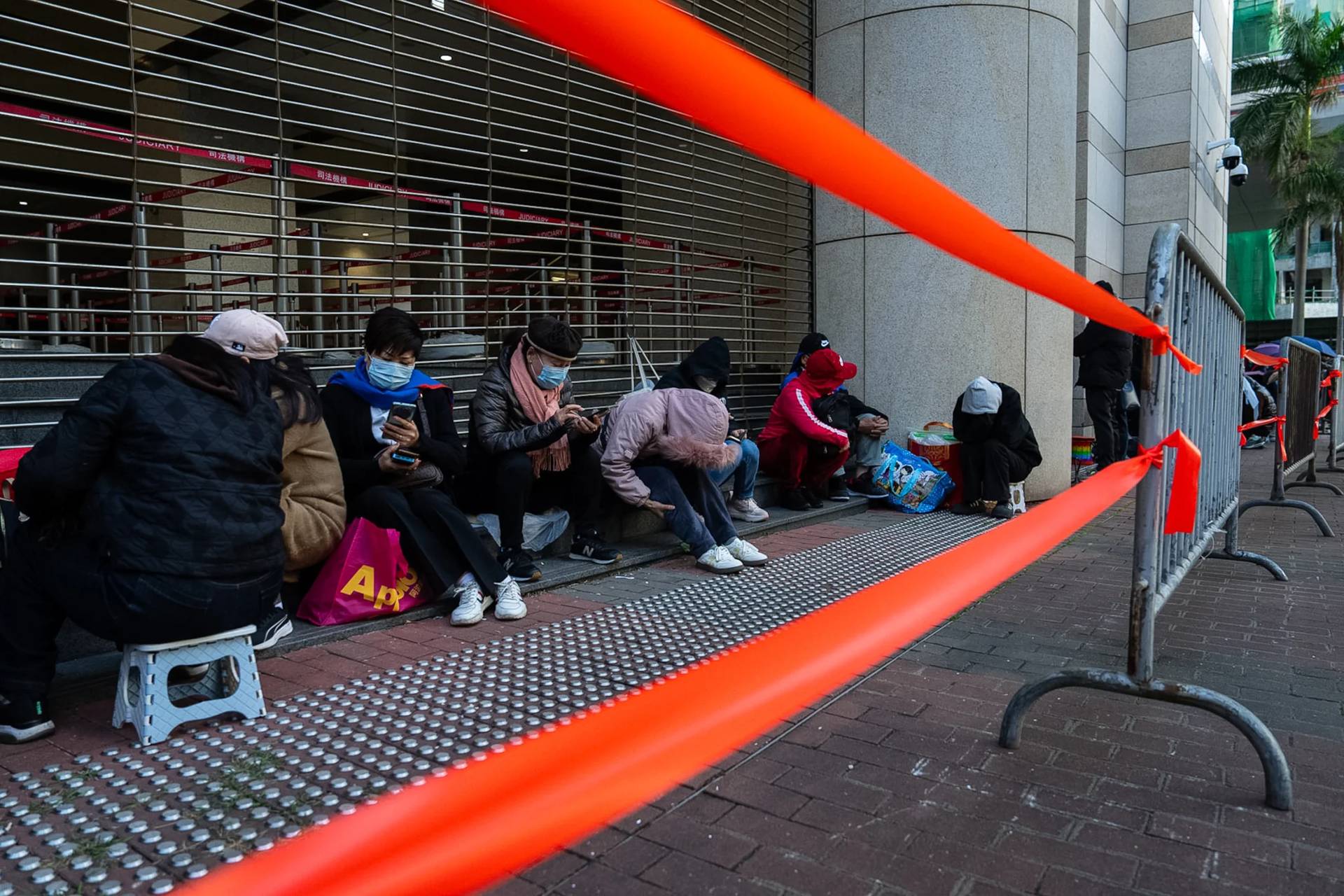MANILA, Philippines — Five suspected Abu Sayyaf militants accused of involvement in the deadly bombing of a Roman Catholic cathedral in the southern Philippines have surrendered to authorities, the national police chief said Monday.
Police Director-General Oscar Albayalde said the five would be charged with murder and attempted murder for their role in the Jan. 27 attack at Our Lady of Mount Carmel Cathedral in Sulu province’s Jolo town, which killed 23 people and wounded about 100 others.
Police have said the attack was carried out by two Indonesian suicide bombers. Police said the suspects taken into custody had escorted the two Indonesians around Jolo and to a meeting with an Abu Sayyaf commander, Hatib Hajan Sawadjaan, who has been accused of plotting and funding the attack.
Police said the five suspects were led by a suspected local militant identified as Kammah Pae, who has denied any involvement in the bombing.
The attack has renewed terrorism fears across the Philippines and the national police have been placed on full alert and security has been strengthened in churches, shopping malls and other public areas. President Rodrigo Duterte has ordered troops to destroy the Abu Sayyaf, leading to a renewed military offensive in the south that has included air strikes and gunbattles.
The attack has also highlighted concerns that the Islamic State group may be gaining a foothold in Southeast Asia after sustaining major battle setbacks in Syria and Iraq. Local militants aligned with the brutal extremist group laid siege to Marawi city in the southern Philippines for five months in 2017 before they were defeated by the military.
Albayalde said the Abu Sayyaf, a small but violent group based in the jungles of predominantly Muslim Jolo and outlying island provinces, staged the cathedral bombing to gain attention and possible funding from the Islamic State group. The militants also want to foment sectarian conflict between minority Muslims in the south and the country’s majority Christians, he said.
“It’s the very same reason why they pledged allegiance to ISIS. They are seeking funding and they are bombing, kidnapping and murdering targets to get funds from the ISIS,” Albayalde said at a news conference in Manila.
The Abu Sayyaf, which has about 300 to 400 armed fighters, has been blacklisted by the United States and the Philippines as a terrorist organization because of years of bombings, kidnappings and beheadings. The commander police have implicated in the cathedral attack, Sawadjaan, is a Muslim preacher who has been linked to ransom kidnappings and the beheadings of hostages, including two Canadian men in 2016.
Citing witnesses to the bombing and statements by some of the suspects, Albayalde said Sawadjaan funded the assembly of the cathedral bombs, which most likely were detonated by an Indonesia man, who had hidden in the south for about a year, and an Indonesian woman, who only recently entered the south.
From a southern island, the Indonesians traveled to Jolo by boat last month and were met by the group now in custody, he said.
Indonesian officials have said there is no conclusive evidence that the attackers were Indonesian.
Police said the attack was planned since last year. Albayalde said the explosives used were powerful pipe bombs, packed with ammonium nitrate, TNT and other chemicals that have been used by the Abu Sayyaf in past attack.
While the local militant leader, Pae, has denied involvement in the bombing, the national police’s chief investigator, Chief Superintendent Amador Corpus, said his surrendered companions have pointed to him as one of their accomplices and said he purchased parts for the bombs.
A military officer with experience monitoring militants, however, raised doubts about some of the police accounts, including the discovery of a bomb and bomb parts in Pae’s house in Patikul town, near Jolo. The officer wondered why Pae would leave such incriminating evidence in his house then surrender to police but deny any involvement in the attack.
The officer spoke on condition of anonymity because he was not authorized to discuss the sensitive case in public.














